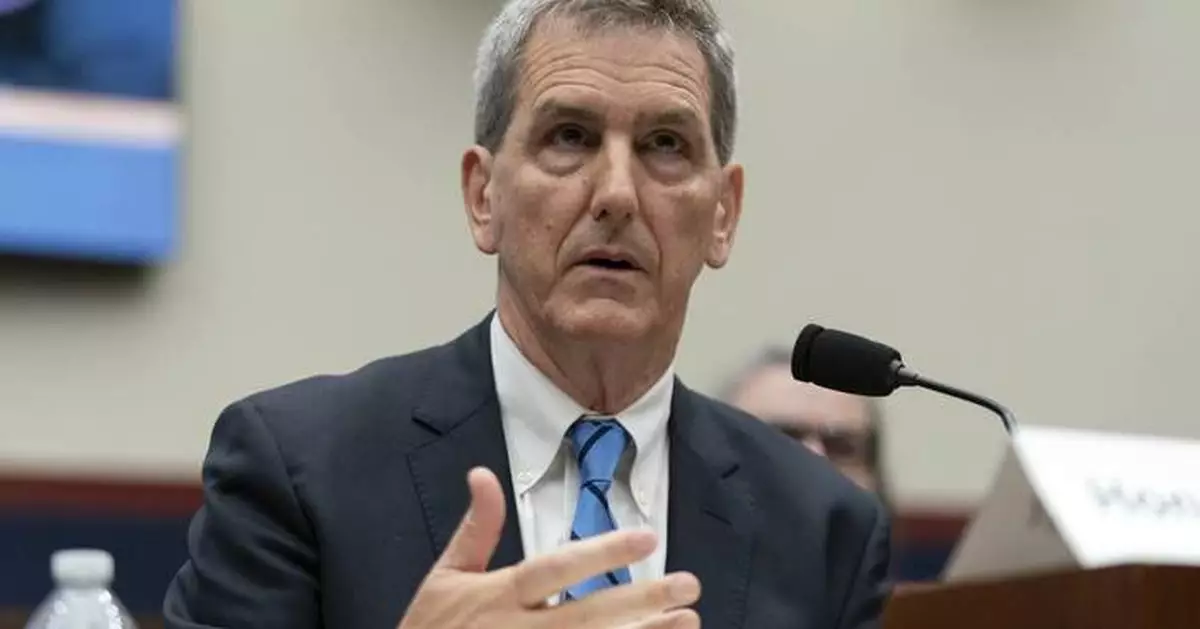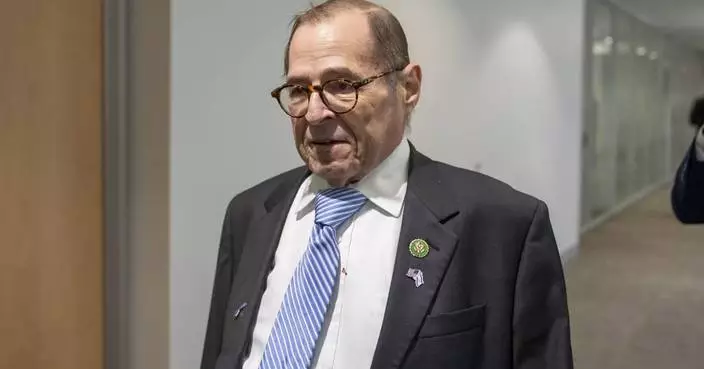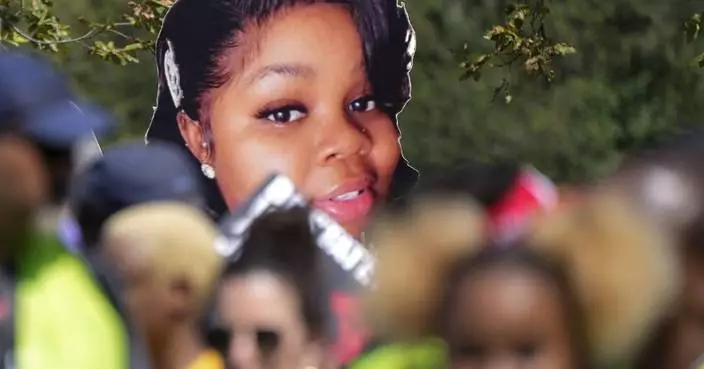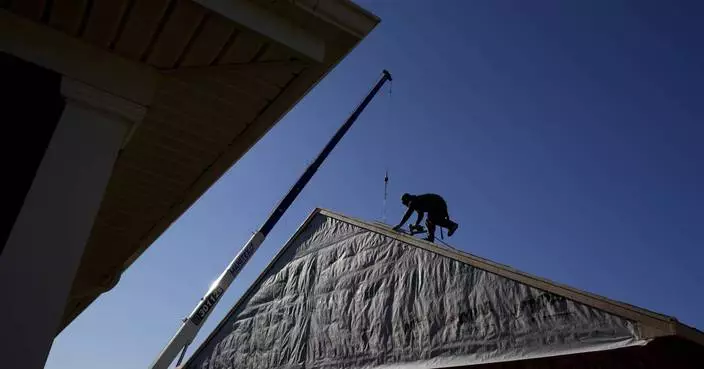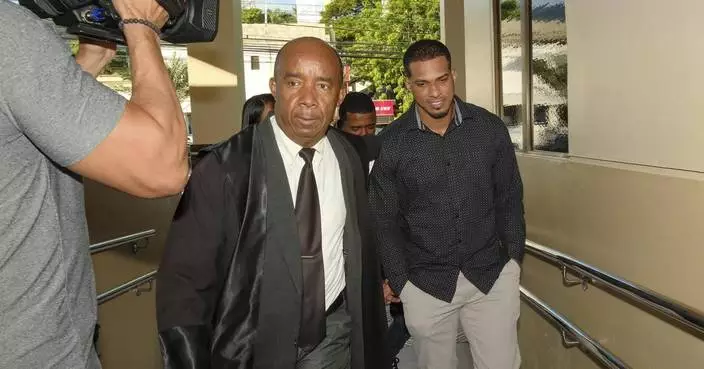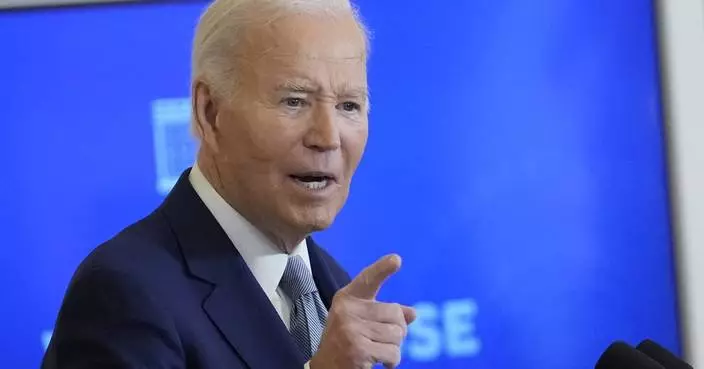The head of the Federal Aviation Administration, who has led a tougher enforcement policy against Boeing since a panel blew off a jetliner in January, said Thursday that he will step down next month, clearing the way for President-elect Donald Trump to name his choice to lead the agency.
Mike Whitaker announced his pending resignation in a message to employees of the FAA, which regulates airlines and aircraft manufacturers and manages the nation’s airspace. He became the agency's administrator in October 2023.
Since then, the challenges confronting Whitaker have included a surge in close calls between planes, a need for stricter oversight of Boeing. antiquated equipment and a shortage of air traffic controllers at a time of high consumer demand for air travel.
“The United States is the safest and most complex airspace in the world, and that is because of your commitment to the safety of the flying public,” Whitaker said in the message to employees. “This has been the best and most challenging job of my career, and I wanted you to hear directly from me that my tenure will come to a close on January 20, 2025.”
Whitaker took the helm of the FAA after the Senate, which is frequently divided along partisan lines, voted 98-0 last year to confirm his selection by President Joe Biden. The agency had been without a Senate-confirmed chief for nearly 19 months, and a previous Biden nominee withdrew in the face of Republican opposition.
FAA administrators — who hold a job that has long been seen as nonpartisan — generally serve for five years, but that has not happened recently. Whitaker's predecessor, Stephen Dickson, also stepped down early before fulfilling his term.
Whitaker served as deputy FAA administrator during the Obama administration, and later as an executive for an air taxi company.
Less than three months into his tenure leading the FAA, a Boeing 737 Max lost a door-plug panel during an Alaska Airlines flight over Oregon, renewing safety concerns about the plane and the company. Whitaker grounded similar models and required Boeing to submit a plan for improving manufacturing quality and safety.
Whitaker said the FAA's oversight of Boeing had been “too hands-off — too focused on paperwork audits and not focused enough on inspections."
In August, the FAA said it had doubled its enforcement cases against Boeing since the January door-plug blowout.
Senators from both parties praised Whitaker on Thursday before a hearing on the FAA's air traffic control system, which has been plagued by a shortage of controllers and old equipment. A computer system that offers safety information to pilots failed in January 2023, causing more than 1,300 flight cancellations and thousands of delays in a single day.
Sen. Ted Cruz, R-Texas, who led the opposition to Biden’s first pick to lead FAA, said the unanimous confirmation vote for Whitaker was a “testament to his experience, his judgement and his apolitical nature. He has ably led the agency during a challenging period.”
Sen. Tammy Duckworth, D-Ill., who heads the Senate aviation subcommittee, said Whitaker’s oversight of Boeing has been essential. “Our aviation system is safer because of his service,” she said.
Sen. Maria Cantwell, D-Wash., chair of the Senate Commerce Committee, which will consider Trump’s nominee to replace Whitaker, said the successor “needs to be ready on day one to continue the job of restoring the FAA’s safety culture and providing real oversight of the aviation sector.”
One factor that may affect Trump's choice is input from Tesla CEO Elon Musk, who has been at odds with the FAA for slowing the Starship mega rocket developed by the billionaire's SpaceX company. Musk, who Trump has named to lead a new “Department of Government Efficiency,” or DOGE, has accused the FAA of being overly bureaucratic.
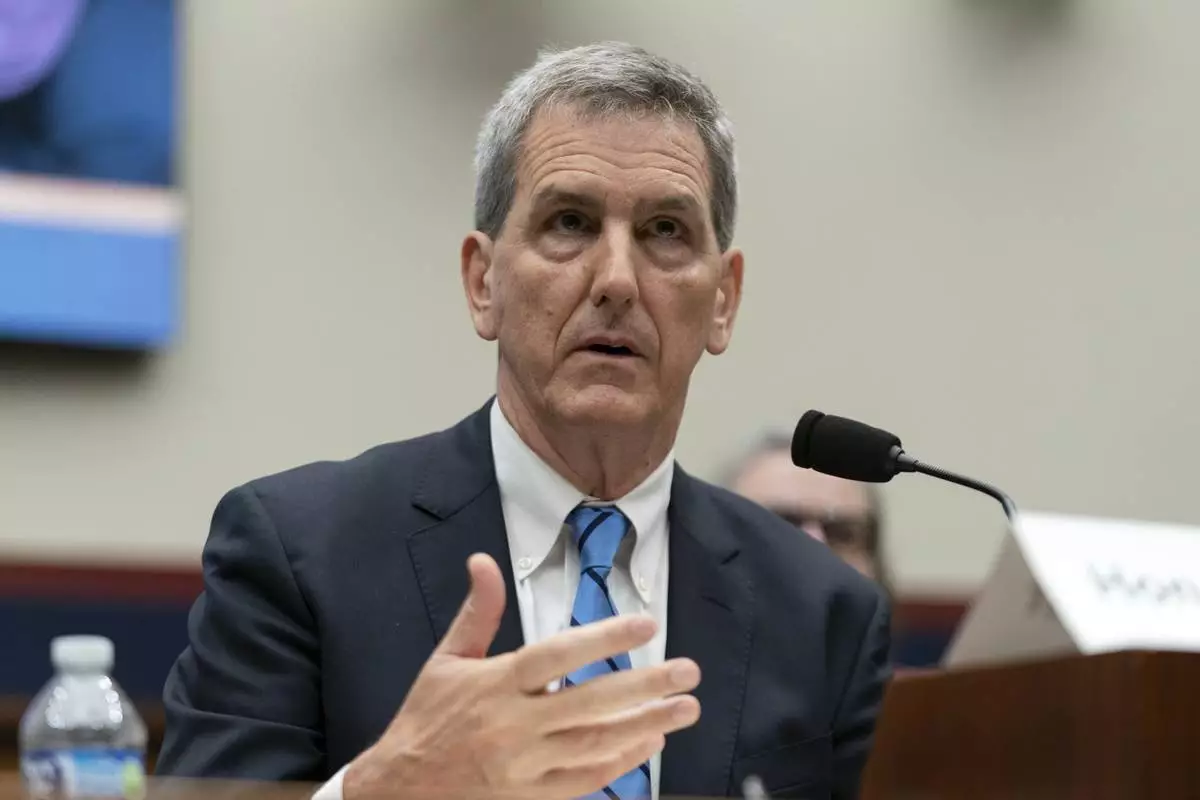
FILE - FAA Administrator Mike Whitaker testifies before the House Committee on Transportation and Infrastructure Subcommittee on Aviation, Sept. 24, 2024, on Capitol Hill in Washington. (AP Photo/Jose Luis Magana, File)
BRUSSELS (AP) — NATO Secretary General Mark Rutte warned on Thursday that Russian President Vladimir Putin wants to “wipe Ukraine off the map” and could come after other parts of Europe next, as he urged Europeans to press their governments to ramp up defense spending.
“It is time to shift to a wartime mindset,” Rutte told security experts and analysts at the Carnegie Europe think-tank in Brussels. He said people should gird themselves for the prospect that Russia might try to use “swarms of drones” in Europe as it has to deadly effect in Ukraine.
Putin “is trying to crush our freedom and way of life," Rutte said. The former Dutch prime minister listed Russia’s attacks on Georgia in 2008, the annexation of Ukraine’s Crimean Peninsula in 2014, and the all-out invasion launched almost three years ago.
“How many more wake-up calls do we need? We should be profoundly concerned. I know I am,” he said. “Russia is preparing for long-term confrontation. With Ukraine, and with us."
Rutte’s inaugural speech came just over two months after he took office as NATO’s top civilian official. He has since toured the capitals of the 32 allies, including a visit to NATO's most important member, the United States to meet with President-elect Donald Trump.
NATO has been a staunch backer of Ukraine and has helped most of its members funnel weapons, ammunition and other support into the country. But Trump’s return, and pledge to end the war quickly, has fueled concern that an unfavorable truce might be forced on Ukraine.
Asked by the Associated Press how damaging a quick and shoddy peace agreement might be, Rutte said that “a bad deal means Putin coming out on top, and that will have worldwide ramifications, not only on Europe and Ukraine.” He insisted that Ukraine must be involved in any peace talks.
Trump routinely complains that U.S. allies in NATO are not spending enough on defense. Rutte said Russia’s military spending is likely to amount to 7 to 8% of its GDP next year -– far more than any NATO ally –- while its defense industry churns out tanks, armored vehicles and ammunition.
Putin also has the support of allies like China, Iran and North Korea.
Rutte noted that defense spending has risen sharply in Europe, with 23 allies expected to reach NATO’s target of putting 2% of GDP into their military budgets. But he added: “I can tell you, we are going to need a lot more than 2%.”
Rutte listed a series of recent “hostile actions” by Russia against NATO allies, including cyber-attacks, assassinations, an explosion at a Czech ammunition depot, the jamming of radars in the Baltic region to disrupt air traffic, and the “weaponization” of migrants to destabilize Europe.
“These attacks are not just isolated incidents. They are the result of a coordinated campaign to destabilize our societies and discourage us from supporting Ukraine,” he said. “They circumvent our deterrence and bring the front line to our front doors.”
Beyond increased defense spending in Europe, Rutte noted that NATO now has tens of thousands of troops on high readiness should they be needed to defend allied territory.
“With all this, our deterrence is good -– for now. But it’s tomorrow I’m worried about,” he said, and warned that “we are not ready for what is coming our way in four to five years. Danger is moving towards us at full speed.”
“What is happening in Ukraine could happen here too, and regardless of the outcome of this war, we will not be safe in the future unless we are prepared to deal with danger,” Rutte added.
Rutte appealed to governments to provide the defense industry with “the big orders and long-term contracts they need to rapidly produce more and better capabilities.” He urged the industry to boost production for defenses against drones and other new war tactics.
He added that “freedom does not come for free” to the estimated 1 billion people living in the Euro-Atlantic area.
“If we don’t spend more together now to prevent war, we will pay a much, much, much higher price later to fight it. Not billions, but trillions of euros. That’s if we come out on top, and that’s if we win,” he said.

NATO Secretary General Mark Rutte speaks during a media conference at the conclusion of a meeting of NATO foreign ministers at NATO headquarters in Brussels, Wednesday, Dec. 4, 2024. (AP Photo/Virginia Mayo)

NATO Secretary General Mark Rutte speaks during a media conference at the conclusion of a meeting of NATO foreign ministers at NATO headquarters in Brussels, Wednesday, Dec. 4, 2024. (AP Photo/Virginia Mayo)



